Alyassia "Asia" Taylor, PhD
The Soulful Creatrix
Sound & Energy Healer| Spiritual Guide| Shamanic Practitioner
Feeling disconnected or searching for clarity on your journey?
Heal from trauma, find balance after chaos, and realign with your true purpose. As the Soulful Creatrix, I offer transformative services including Sound and Energy Healing Sessions, Divine Path Consultations, and Spiritual Guidance to empower your journey. Dive deeper with my Creatrix Academy courses and workshops, designed to awaken your spirit and nurture personal growth.
Ready to begin? Start your healing journey today by claiming your free gift below.
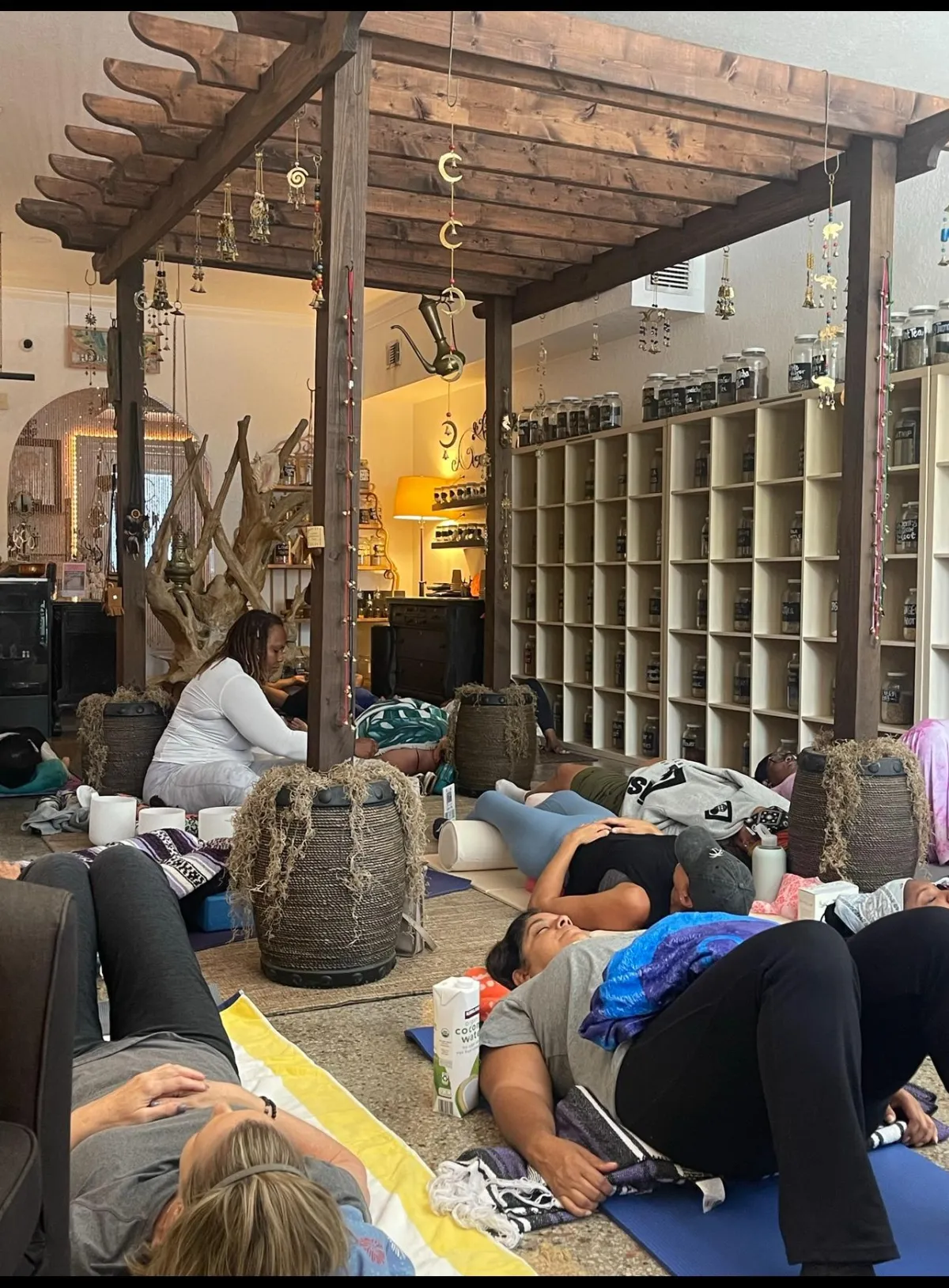
Explore Sound & Energy Healing with Dr. Asia
Discover a blend of vibrational therapy, intuitive spiritual coaching, and energy healing designed to uplift your spirit, ignite creativity, and realign with the Wholeness of YOU.
Join Us Out in the Community
Benefits of Sound Healing

Improves Health
Sound and Vibrational Healing supports the body's natural healing processes, promoting overall health and well-being by restoring balance and harmony to the body's energy systems.

Improves Sleep Quality
The soothing vibrations of sound healing can improve sleep patterns, leading to more restful and rejuvenating sleep experiences.

Stress Relief
Sound and Vibrational Healing promotes deep relaxation, helping to alleviate stress and anxiety by harmonizing the body's energy fields.

Emotional Release
This healing modality facilitates the release of emotional blockages, allowing individuals to process and heal from past traumas and emotional pain.
Ready to Experience True Alignment?
Here are 3 easy ways to get started with Dr. Asia:

Sign up for the Email Updates
Dive into the mystical world of metaphysical insights delivered straight to your inbox every two weeks. As a subscriber, you’ll be the first to know about exclusive promotions and receive invitations to both online and in-person events. Don’t miss out on this journey of discovery and enlightenment!

Join the Creatrix Academy
Embark on a transformative journey at your own pace with self-guided courses, designed to seamlessly integrate metaphysical and spiritual elements into your life. Monthly membership subscribers enjoy unlimited access to courses, exclusive guided sessions, members-only meditations, interactive Q&A sessions, and a growing library of resources. Elevate your spiritual journey today!

Book a Discovery Call or Private Appointment
If this is your first time working with me, a Discovery Call is the perfect opportunity to see if our paths align and determine how I can best support your journey. This 15-minute virtual meeting will help us decide on the next steps together. Previous clients, feel free to book your appointment directly through my service calendar.
ABOUT DR. ASIA
"Vibrational healing is the art of tuning the soul's symphony, aligning each note to resonate with the harmony of Source."
~Asia
I’m Alyassia “Asia” Taylor, and I’m a Guide, Healer, Artist, and soulfully creative entrepreneur.
As a passionate intuitive healer, I explore various modalities and practices, but my focus lies in the transformative power of sound and vibrational energy. Crystal Singing bowls, Tuning Forks, and other sound techniques allow me to guide individuals toward healing from past trauma and finding inner peace. Additionally, I coach others on using their intuition and harnessing Divine Source Energy to co-create their ideal lives.
My educational background includes an MBA in Project Management from Keller and a Doctor of Philosophy (PhD) in Metaphysics from UMS. Also, as an ordained Reverend through the Wisdom of the Heart Church, I offer my services for rituals and ceremonies.
In my local community, I strive to foster unity and enhance our quality of life through the practice of what I call "Urban Alchemy." But beyond community work, I’m also an entrepreneur. Through my private practice as a healer and my consulting business, Stormborn Media Group, LLC, I help bring visions to life online. Creating is my purpose, and I love guiding others to express themselves, find comfort, and grow as individuals.
With compassion in my heart, I aim to inspire everyone to recognize their creative abilities as spiritual beings. Let’s collaborate to turn your desired life into a beautiful reality.
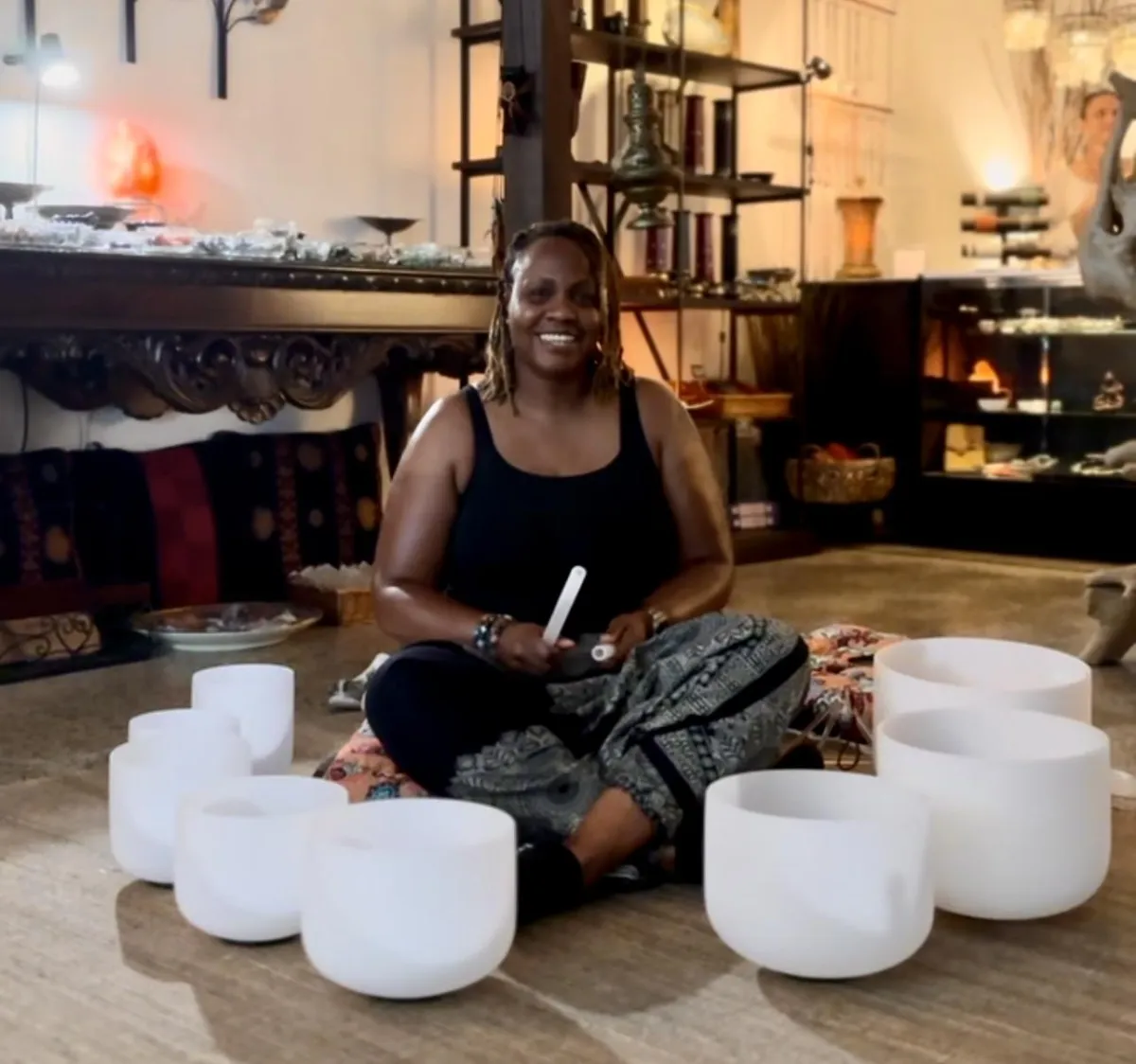
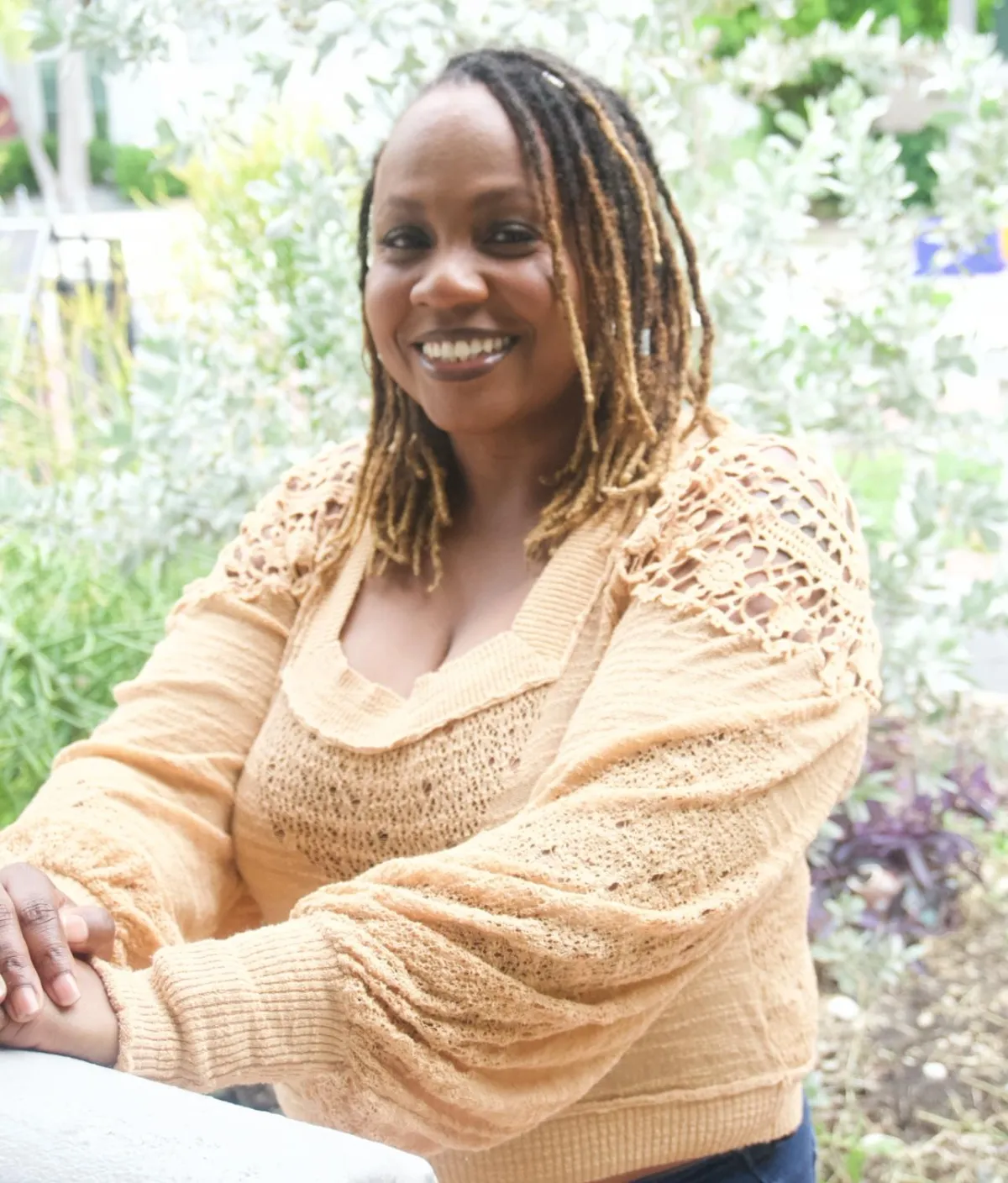
Certified Alternative Healing Practitioner
Sound Therapy & Sound Healing Accredited Practitioner
Certified Master Spiritual Life Coach
Certified Spiritual Advisor & Medium
Usui Reiki Master
Dr. Asia's Writings and Articles
(includes affiliate links)
FAQ
What is sound and energy healing, and how does it work?
Sound and energy healing is a holistic practice that uses vibrational frequencies to promote physical, emotional, and spiritual well-being. Instruments like Crystal Singing Bowls and Tuning Forks create sound waves that resonate with the body's energy centers, helping to release blockages and restore balance.
Does sound and energy healing conflict with my religious beliefs?
Sound and energy healing is a practice rooted in the intention of promoting well-being and harmony for all. I encourage you to reflect on how these practices align with your personal beliefs and values. My work is conducted with the utmost respect and intention for the good of all, regardless of religious preference, aiming to support your personal growth and spiritual journey.
What can I expect during a sound healing session?
During a sound healing session, you'll be invited to relax in a comfortable position while I play various instruments. The session is designed to create a calming environment where you can experience deep relaxation, clarity, and emotional release. Many clients report feeling a sense of peace and rejuvenation afterward.
How does spiritual guidance differ from traditional therapy?
Spiritual guidance focuses on aligning your inner self with your life path, using intuitive insights and metaphysical principles. Unlike traditional therapy, which often addresses psychological issues, spiritual guidance helps you explore your soul's journey, uncovering deeper truths and empowering personal growth.
Who can benefit from sound and energy healing?
Sound and energy healing is beneficial for anyone seeking to improve their overall well-being, manage stress, or find emotional balance. It's particularly helpful for individuals experiencing grief, trauma, or life transitions, as it supports healing on a profound level.
How often should I have a sound healing session?
The frequency of sessions depends on your personal goals and needs. Some clients find monthly sessions beneficial for ongoing support, while others may choose more frequent sessions during times of stress or transition. We can discuss a schedule that aligns with your healing journey.
What should I do to prepare for a session?
To prepare for a session, wear comfortable clothing and come with an open mind. It's helpful to set an intention for what you hope to achieve or release during the session. Hydration is also important, so drink plenty of water before and after to support the energetic shifts.
Offerings

Tuning Fork Healing Session
Unlock your body's natural healing potential with our Tuning Fork Healing sessions. Utilizing precise frequencies, these finely tuned instruments draw from ancient sound therapy practices to create harmonious resonance. Experience the realignment of your energy centers, release of tension, and restoration of vitality, promoting profound healing and balance.

Intuitive Energy Healing Session
Experience transformative healing with Intuitive Shamanic Healing sessions, combining ancient traditions and modern energy techniques. Dr. Asia intuitively blends the calming effects of ancient Reiki and Shamanic healing, and Polarity Therapies with sacred symbols and mantras to restore balance and harmony, fostering spiritual growth while offering relief from stress and chronic pain

Divine Path Consultation
Discover profound insights and clarity with our Divine Path Reading, a transformative online session that serves as a lifelong blueprint for your spiritual journey. This flagship service combines tarot, astrology, ancestral communication, Human Design, and intuitive energy reading to craft a personalized, spiritually aligned path. Whether seeking clarity, guidance, or deeper spiritual connection, our 60-75 minute virtual sessions provide the tools and insights to navigate your journey with confidence and grace.
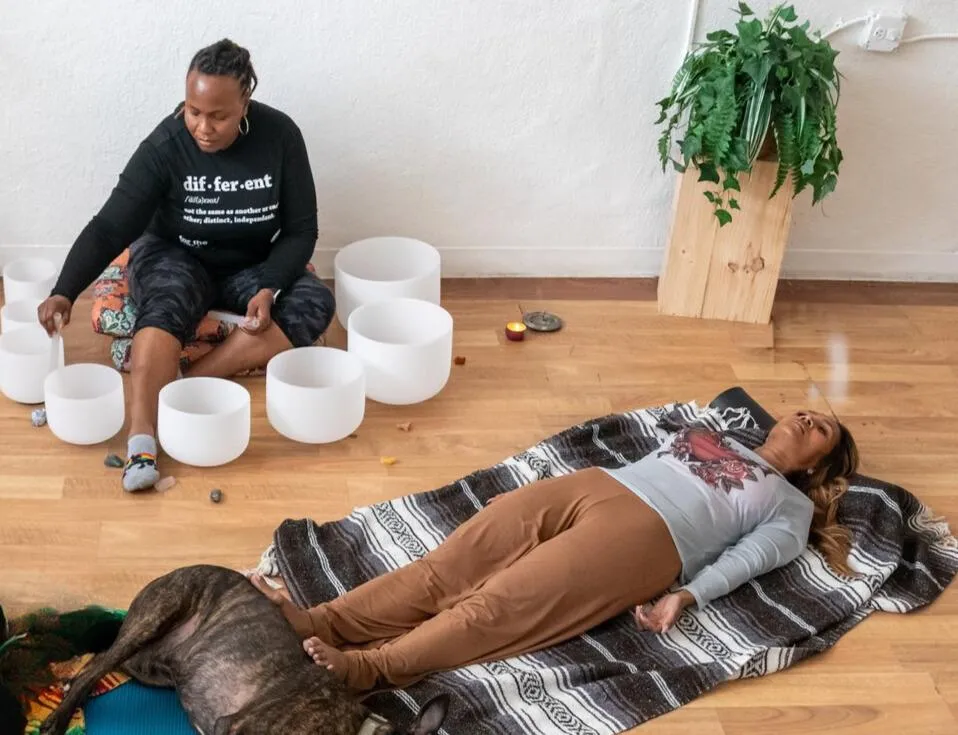
Private Sound Bath Session
Immerse yourself in the calming and rejuvenating experience of a crystal bowl sound bath. Let the resonating frequencies of our handpicked crystal bowls restore balance, promote deep relaxation, and guide you towards inner peace. Ideal for stress relief and emotional healing, sound bathing is an unforgettable journey of sound and tranquility.

Intuitive/Spiritual Guidance
Discover the profound impact of intuitive and spiritual guidance from the comfort and privacy of your own space. My unique approach seamlessly blends intuitive insights, divination, and psychospiritual guidance to help you navigate life’s challenges and achieve your personal and spiritual goals. As an ordained minister with the Wisdom of the Heart Church, I provide inclusive, experience-led guidance.

Specialty Offerings
Each service is tailored to meet your specific needs and conducted at your location. To book a session, please reach out via phone or email.
Rituals & Ceremonies: Experience personalized rites and ceremonies crafted to honor significant life transitions and milestones. As an ordained Reverend, Asia creates sacred spaces for reflection, celebration, and healing.
Death Doula Services: Navigate the end-of-life journey with compassion and grace. As your family's Death Doula, I provide emotional and spiritual support, ensuring a peaceful transition.
Home Energy Clearing: Transform your living space into a harmonious sanctuary. Our home energy clearing services remove negative energies, fostering an environment of peace and positivity.
SOULFUL CREATRIX BLOG
The Healing Power of Frequency: 440Hz vs. 432Hz Music
Let's discuss the differences between 440 Hz and 432 Hz as sound healing methodologies. Introduction to Project 432. ...more
Sound Healing ,Soul Alchemy Spirituality &Mindfulness
May 22, 2025•2 min read

Navigating Pluto Retrograde with Sound Healing: A Journey to Spiritual GrowthPost
Let's talk about how we can use sound to help us through the Pluto retrograde. First installment in the Retrogrades Survival Series. ...more
Sound Healing ,Astrology Soul Alchemy Spirituality &Mindfulness
May 15, 2025•5 min read

Releasing What No Longer Serves You
Let's discuss the power that comes with releasing what no longer serves our highest purpose. ...more
Spiritual Healing ,Spirituality &Mindfulness
April 29, 2025•3 min read

Creatrix Academy Featured Courses
Checkout all of the Courses Available in the Academy (Requires Email to Signup)
Join Membership for Unlimited Courses, Workshops and Bonuses Monthly
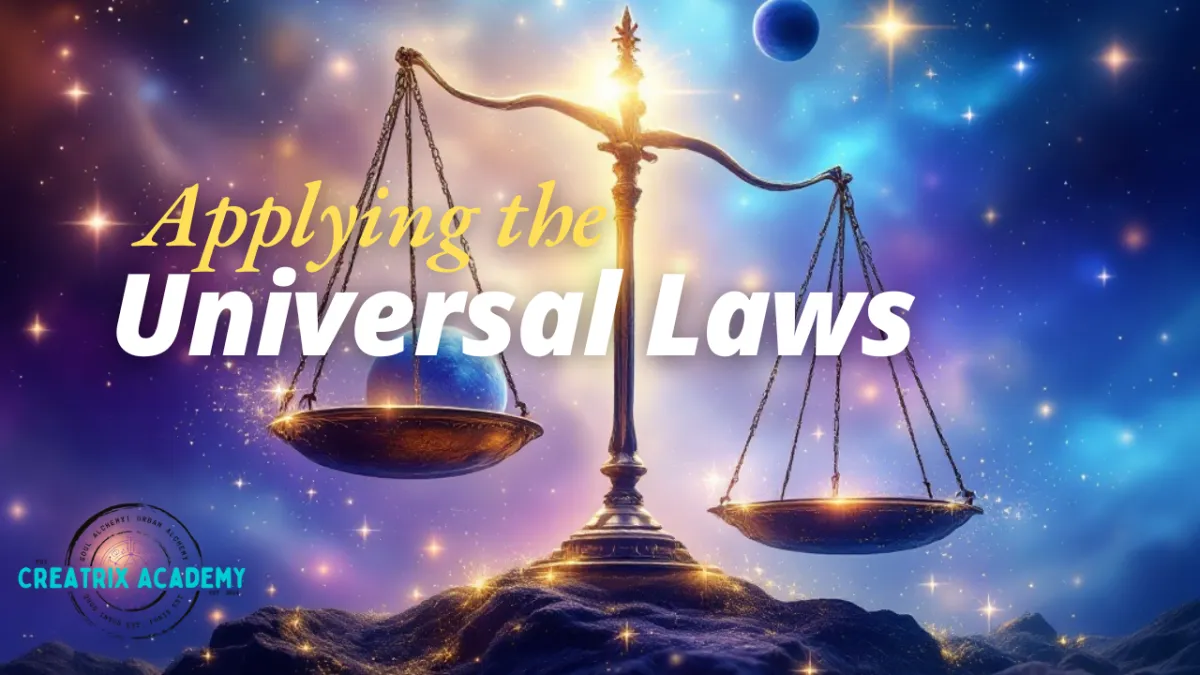
Applying the Universal Laws

21 Days of Finding You: A Journaling Course
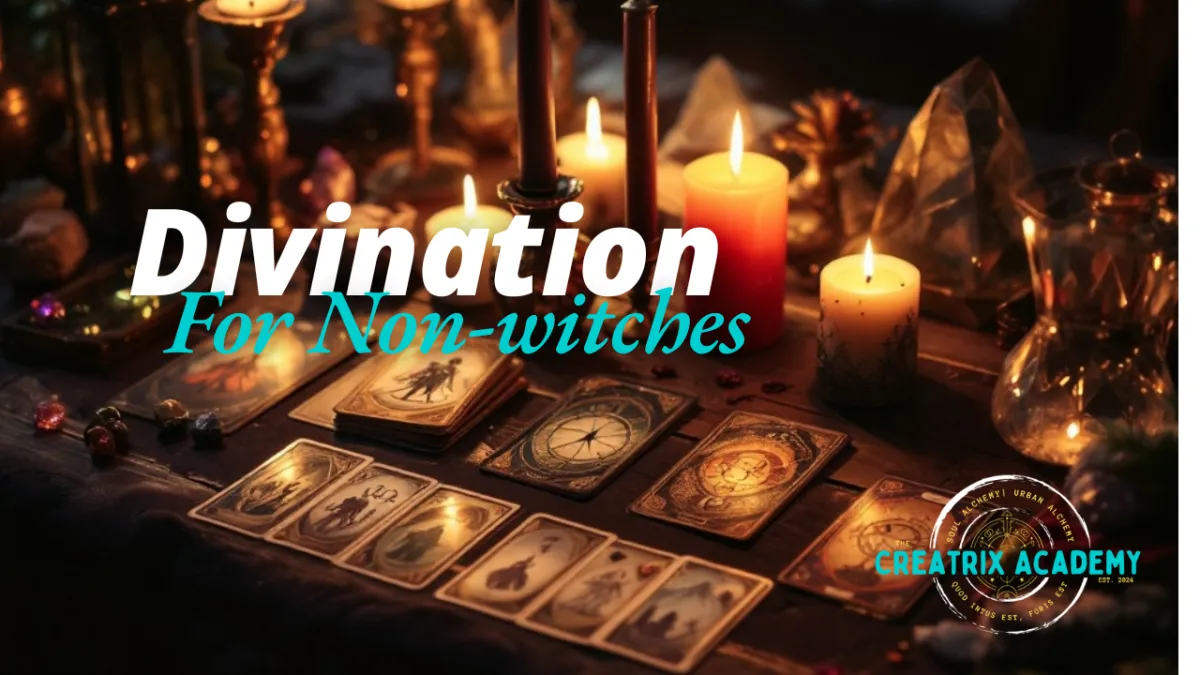
Divination for
Non-witches
TESTIMONIALS
What others are saying
Reviews collected via Heal.me
"Working with Dr. Alyassia was such an amazing experience. She’s very hospitable, funny and kind. Words can’t explain, all I can say is that everything about this session was authentic and powerful. I am blessed and highly favored that the universe guided me to her." -Timmeka H.

"I had the pleasure of attending a Crystal Bowl Sound Bath led by Dr. Alyassia. She explained the process and what to expect from the experience before we began. For the first time in months, I was able to calm my usually restless mind and I left with a calmer energy and full of gratitude for the practice. Self care is important and I’m so excited to have found a practice that I can incorporate into my wellness routine.”
-Ashley

"Working with Dr. Alyassia has been nothing but extraordinary! She is a true joy to be around. A wealth of knowledge and talent. My life has not been the same since my first encounter with her. I have evolved and am continually evolving. I have strengthened my meditation practice. Deepened my self worth, self care and self confidence. I have learned to better manage my stress and anxiety. Dr. Alyassia has introduced me to mindfulness. Which too has been life changing and altering for me for all the better! Thank you Dr. Alyassia for being authentically you! Keep shining bright! I already know you are and will ."- Rachel J.

“This was one of the most memorable and healing experiences of my life. I will continue to work with Dr. Alyassia monthly as I feel we need all kinds of healing and the work Dr. A does is amazing! She truly is remarkable at what she does. Her energy is very calming and she explains everything as shes working with you. I will be making this part of my monthly wellness!
” - Alise N.

Get In Touch
Email: [email protected]
Address
Mailing:
1691 Forum Pl., Ste B-369
West Palm Beach, FL 33401
Asia's Soul Space: Address Given
when booking appointment
Assistance Hours
Tues – Sat 10:00am – 8:00pm
Phone Number:
561-899-9033
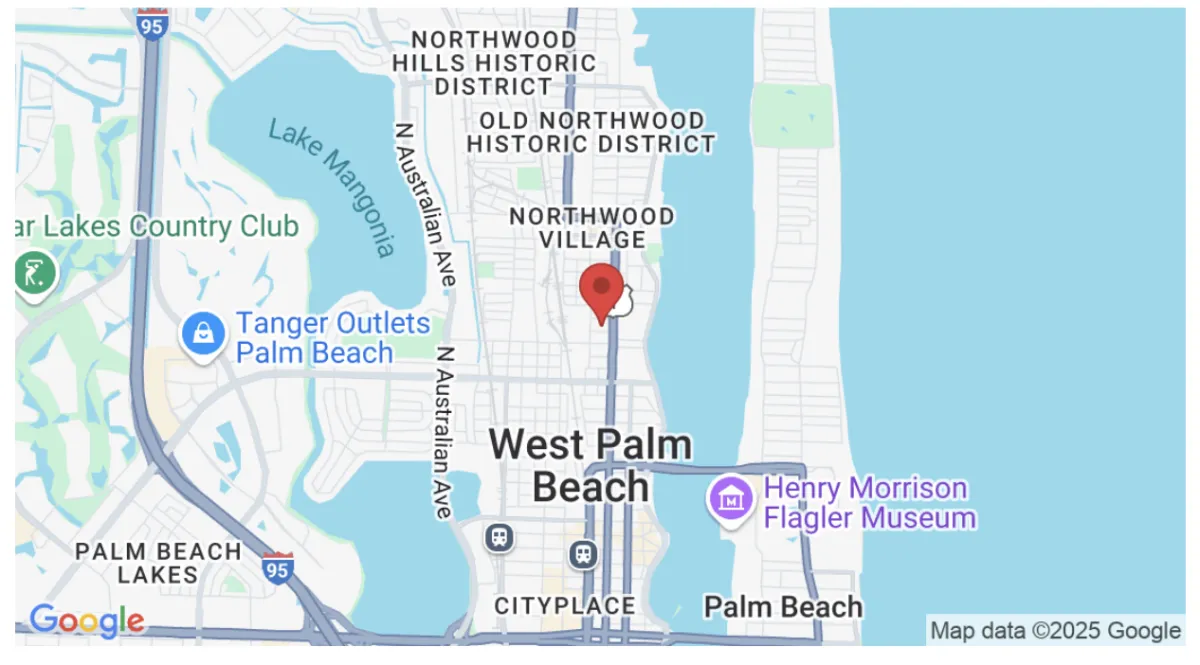



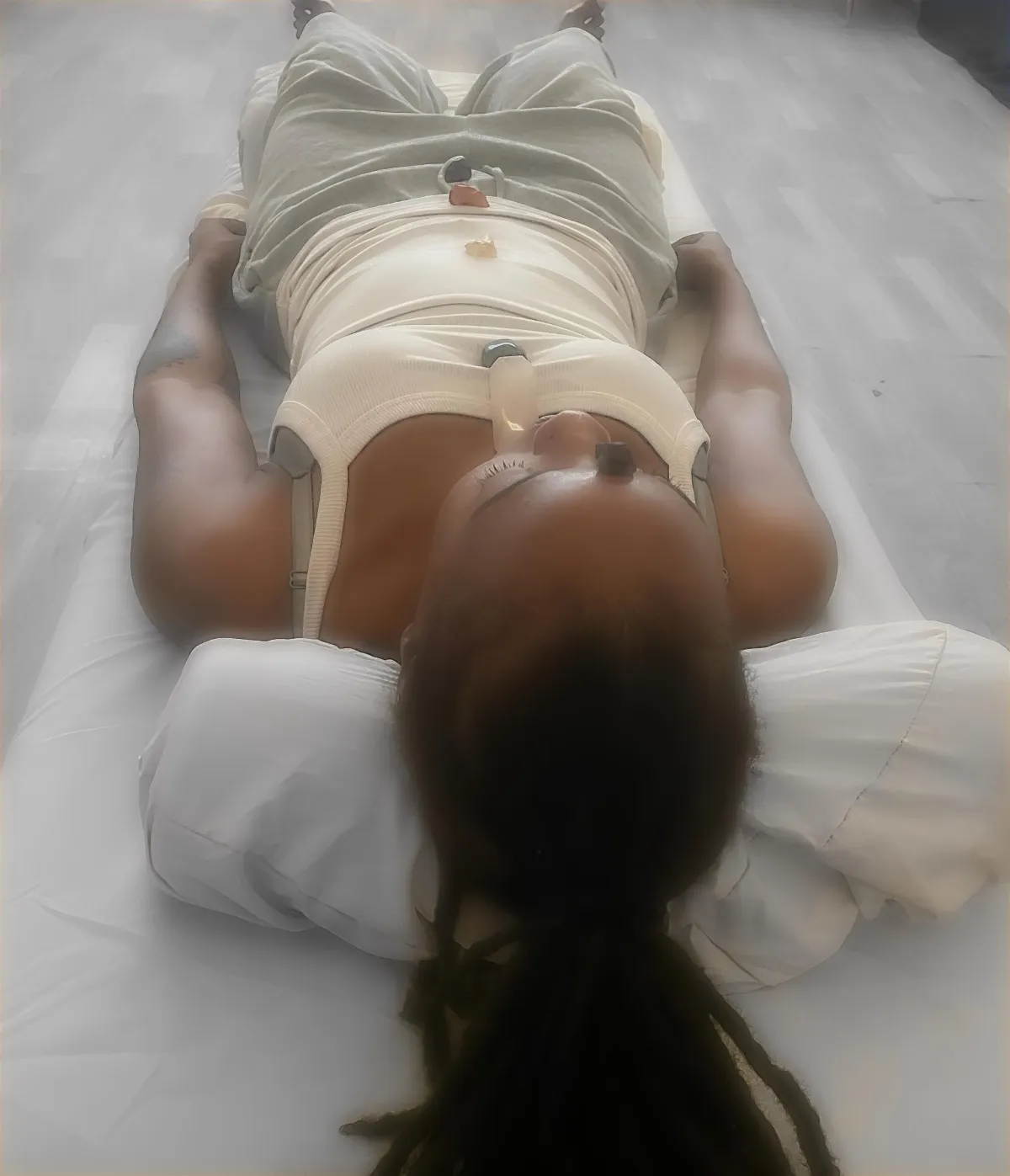

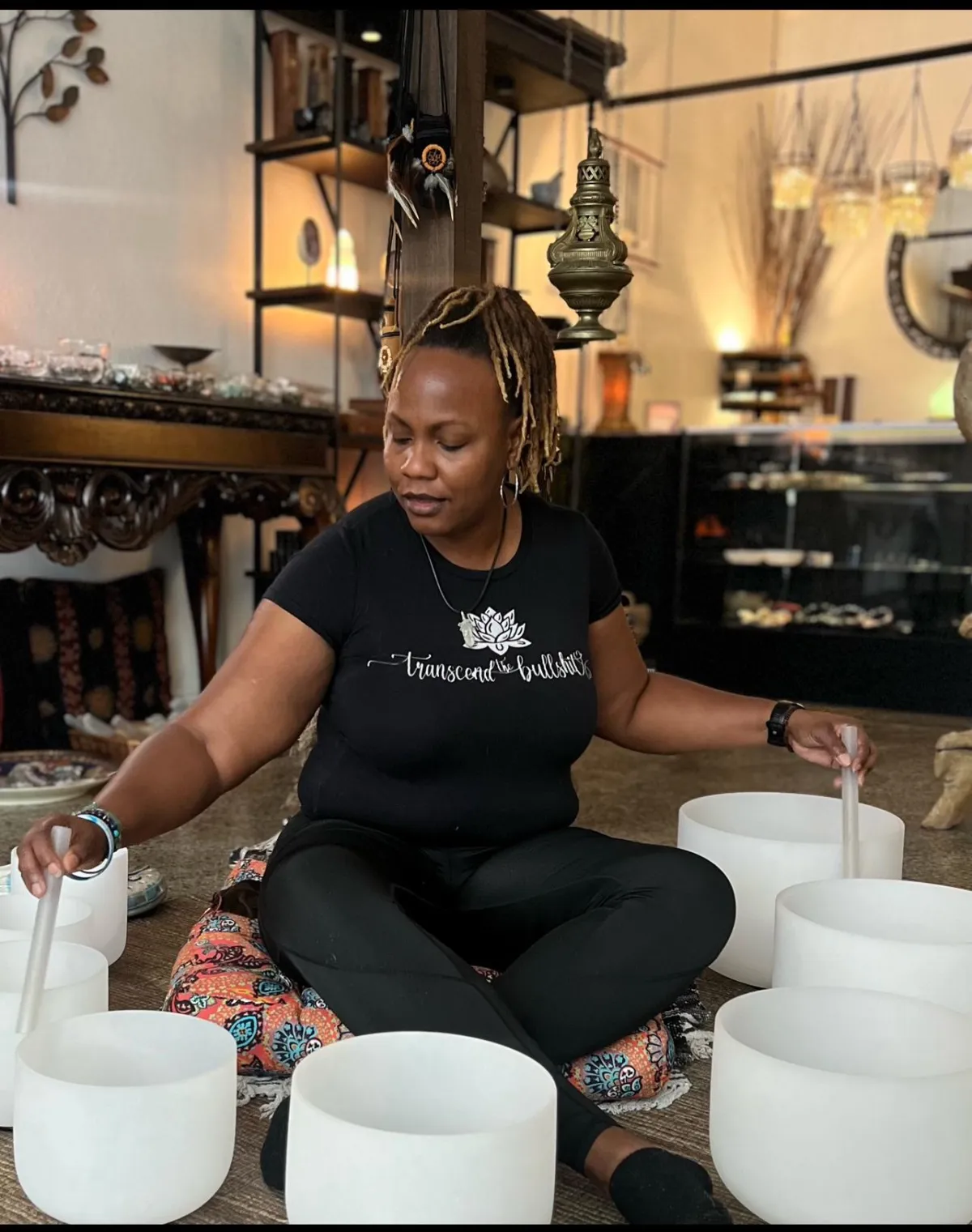

Facebook
Instagram
LinkedIn
Youtube
TikTok